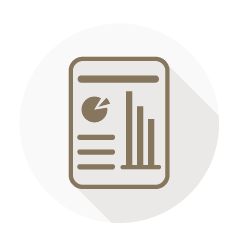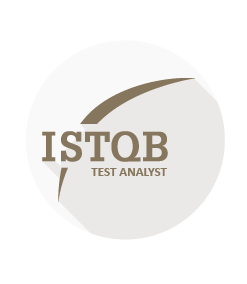ISTQB Certified in AI Testing
This introductory certification course to Artificial Intelligence (AI), gives you a broad insight into the AI methods used to test AI-based solutions and how AI-based solutions can be used to test other IT-systems.
Learning objective
This fundamental course to AI, Artificial Intelligence, gives you a broad insight into the AI methods used to test AI-based solutions and how AI-based solutions can be used to test other IT-systems. Furthermore the following outcome:
- Understand the current state and expected trends of AI
- Experience the implementation and testing of a ML model and recognize where testers can best influence its quality
- Understand the challenges associated with testing AI-Based systems, such as their self-learning capabilities, bias, ethics, complexity, non-determinism, transparency and explainability
- Contribute to the test strategy for an AI-Based system
- Design and execute test cases for AI-based systems
- Recognize the special requirements for the test infrastructure to support the testing of AI-based systems
- Understand how AI can be used to support software testing
Target audience
The ISTQB Certified in AI Testing aimed at people who are seeking to extend their understanding of artificial intelligence and/or deep (machine) learning, most specifically testing AI based systems and using AI to test.
Prerequisites
To achieve the CT-AI certification, candidates must hold the ISTQB® Certified Tester Foundation Level (CTFL) certificate, but now a prerequisite to attend the course.
Furthermore, we recommend that you have:
- Knowledge and understanding of programming language – Java/Python/R
- Knowledge and understanding of statistics
- Experience with software development and testing
Course and Exam format
Over the course of 4 intensive days, you will be taught in the subjects included in the exam. The course contains both a theoretical review, practical exercises, and discussion. There will be a high degree of participant involvement.
Prior to course start, expect to prepare by reading approximately 10 hours from the curriculum. During the course you should expect 2 hours of homework every day after class.
Exam format:
The exam is an official ISTQB-exam. The 1-hour exam has 40 multiple choice questions, and no assistance is permitted. You must answer at least 65% of the questions correctly to pass. Participants that take the exam not in their spoken language, will receive additional 25% time, and will have 15 minutes more, or a total of 75 min.
In-House training?
If you are more than 5 people from same organisation, it can be beneficial to consider the course as in-house training. We conduct the course exclusively for your employees, either as standard as described or tailored to your needs.
Advantages of in-house training
- Financial savings for more than 5 people
- Intensive exchange of experiences and knowledge sharing
- Employees gain a common understanding of the subject
- Opportunity for unique customization based on your own methods and processes
Contact Us
Contact us to learn more about how we can customize a program specifically for your company.







